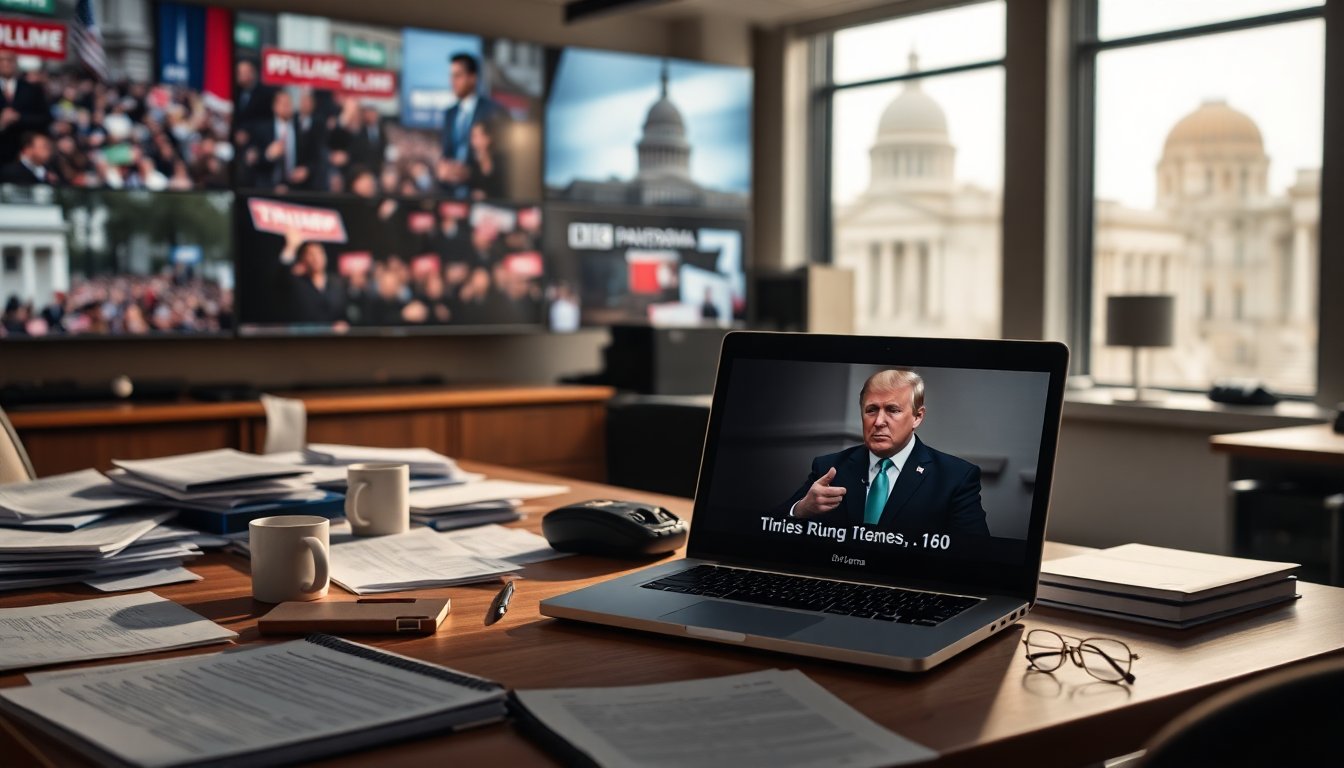Table of Contents
In a significant turn of events, former U.S. President Donald Trump has issued a stern warning to the BBC, threatening legal action amounting to one billion dollars if the British broadcaster does not retract a recently aired documentary by November 14. The controversy stems from a Panorama documentary that allegedly manipulated a speech delivered by Trump on January 6, during which his supporters stormed the Capitol in Washington, D.C.
This situation has led to the resignation of key BBC executives, including Director-General Tim Davie and News Chief Deborah Turness, who stepped down following accusations of bias and misleading presentation of information. The BBC’s chairman, Samir Shah, has publicly apologized for what he deemed an “error of judgment” that precipitated these resignations.
Details of the controversy
The Panorama documentary, titled Trump: A Second Chance?, aired just days before the U.S. presidential election. It involved the controversial editing of Trump’s speech, amalgamating quotes from two distinct segments delivered nearly an hour apart, which made it seem as though he was inciting violence. In the documentary, Trump’s call to “fight like hell” was featured prominently, while crucial parts of his speech, where he urged peaceful demonstration, were omitted.
Response from the BBC
In response to Trump’s legal threat, the BBC acknowledged receipt of the letter and indicated that it would examine the claims presented. The corporation stated, “We will review the letter and respond directly in due course.” This response came amid growing scrutiny from a cross-party group of Members of Parliament (MPs), who expressed their concerns regarding the potential misrepresentation of Trump’s statements. A leaked internal memo reportedly highlighted instances where the documentary could mislead its audience.
Resignations of top executives
The fallout from the documentary has been significant, resulting in the departure of notable figures within the BBC. Both Tim Davie and Deborah Turness resigned after acknowledging that mistakes were made in the handling of the documentary. In a statement, Davie noted that the ongoing discussions surrounding the BBC’s editorial standards contributed to his decision to resign, admitting that the BBC’s actions had caused damage to the institution’s reputation.
Public and political reactions
The response to these events has been swift, with various public figures and politicians weighing in. Trump himself welcomed the resignations, viewing them as a validation of his claims regarding media bias. Meanwhile, Conservative Party leader Kemi Badenoch criticized the edits in the documentary as “fake news” and called for accountability within the BBC. This sentiment was echoed by former Prime Minister Boris Johnson, who questioned whether anyone at the BBC would take responsibility for the incident.
Implications for media integrity
This controversy raises critical questions about media integrity and the responsibility of broadcasters to present information accurately. The House of Commons Culture, Media, and Sport Committee has requested that the BBC clarify the measures it is taking to address these concerns. Caroline Dinenage, the head of the committee, emphasized the necessity for the BBC to maintain its reputation for fairness and accuracy in reporting, particularly in an age where misinformation is rampant.
The BBC has faced over 500 complaints since the release of the documentary, reflecting public discontent over the perceived editorial bias. In light of these complaints, the BBC chair mentioned that the organization is committed to addressing the issues raised and improving its editorial standards to avoid similar occurrences in the future.
Looking ahead
The implications of this incident extend beyond individual resignations and legal threats; they highlight the ongoing struggle between media outlets and political figures in the context of shaping public opinion. As the BBC navigates these turbulent waters, the future of its editorial policies and practices will be closely scrutinized by both the public and politicians alike.


